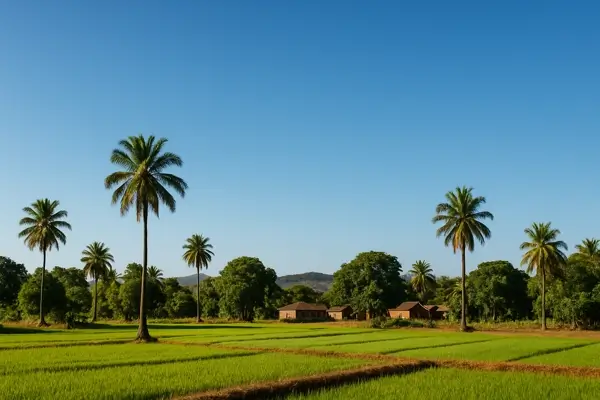
The Land of Rivers – Guinea is known as the "Land of Rivers" because of its extensive network of rivers, including the Niger, Gambia, and Sankarani rivers, which play an important role in the country's economy and transportation.
Diverse Ethnic Groups – Guinea is home to over 24 different ethnic groups, with the largest being the Fulani, Malinké, and Soussou. This diversity is reflected in the country’s rich cultural traditions, languages, and festivals.
Guinea's Official Language – The official language of Guinea is French, a result of its colonial history under France, although local languages such as Fulani, Malinké, and Soussou are widely spoken across the country.
Rich Natural Resources – Guinea is one of the world’s largest producers of bauxite, the primary ore used to produce aluminum, and it also has significant deposits of gold, diamonds, and iron ore.
Historical Significance – Guinea was the first sub-Saharan African country to gain independence from France in 1958 under the leadership of Sekou Touré, who became the nation’s first president.
Mountains and Natural Beauty – Guinea is home to the Fouta Djallon mountains, known for their beautiful scenery, waterfalls, and deep valleys. This mountain range is also the source of many of West Africa's major rivers.
Guinea's National Animal – The Western Gorilla is one of Guinea’s most well-known animals, inhabiting the forests of the Guinea Highlands. The country also boasts a variety of wildlife, including chimpanzees, elephants, and antelopes.
Cultural Heritage – Music plays an essential role in Guinean culture, with traditional rhythms like drumming and dance being central to celebrations. The country is known for producing some of West Africa’s most influential musicians.
Vibrant Markets and Handicrafts – Guinea has vibrant local markets where you can find a variety of handmade crafts, including woven baskets, wooden carvings, and textiles. These markets are key to the country's economy and cultural identity.
Political Challenges – Guinea has experienced political instability over the years, including military coups and struggles for democracy, but it has made progress in recent years with the election of civilian governments.
